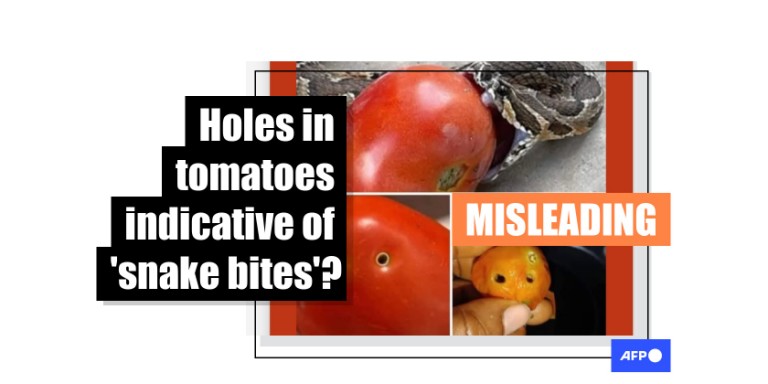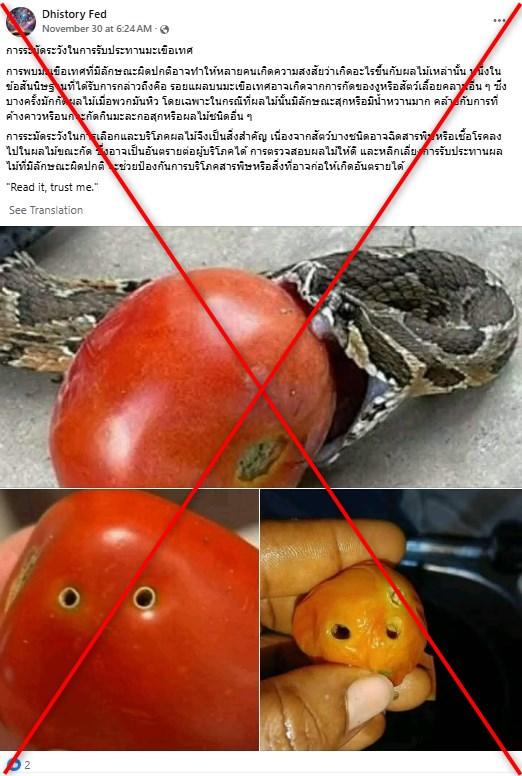
Experts rubbish posts warning that holes in fruits and vegetables a sign of 'snake bites'
- This article is more than one year old.
- Published on December 23, 2024 at 10:06
- 2 min read
- By AFP Thailand
"Precautions on consuming tomatoes, finding tomatoes with these abnormal features may lead many to question what happened to it," read the Thai-language caption to a collage shared on Facebook on November 30, 2024.
The collage shows an image of a snake biting into a tomato and pictures of holes in tomatoes.
Its caption added that the holes may have been created by a bite from a snake, which it claimed would "occasionally bite into fruits when they are hungry".
"Your vigilance will protect you from intaking poisonous substances injected into fruits by animals."

Similar claims were shared on Facebook, Instagram, Threads, TikTok and X, and were repeatedly posted in Burmese.
The vast majority of commenters dismissed the warning, but a few users appeared to have been misled.
"Now I know...Thank You so much for the information," read one comment.
Another said: "Good to know!"
But Saranont Charoensuk, senior manager and head of operations at Bangkok snake museum Siam Serpentarium, told AFP, "By nature, snakes do not bite or eat vegetables and fruits" (archived link).
"The snake in the first photo is a viper -- a venomous snake which preys on small mammals, reptiles, and amphibians," he added on December 3.
Taksa Vasaruchapong, acting head of Thailand's venomous snake husbandry centre, also said that snakes are carnivorous so do not consume fruits and vegetables (archived link).
He also told AFP on December 3 that ingesting snake venom orally is not as potent as when compared to exposure through the bloodstream, as "snake venoms are proteins which can be broken down by gastric acid."
Both experts said the holes seen in the circulating images were unlikely to be made by snake bites.
Taksa added that snake bites are not easily identifiable as their fangs are "as small as syringe needles".
Teerada Wangsomboondee, a professor with Chulalongkorn University's Department of Botany, told AFP that, in any case, it would be best to avoid consuming fruits and vegetables that have these visible holes (archived link).
"If such gaping holes are visible the insides of the fruit would be mush and soggy," Teerada said on December 20.
"Whether the holes are caused by pests or worms, there would be no nutritional value left."
Copyright © AFP 2017-2026. Any commercial use of this content requires a subscription. Click here to find out more.
Is there content that you would like AFP to fact-check? Get in touch.
Contact us
